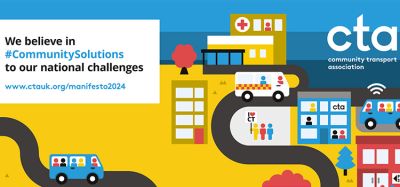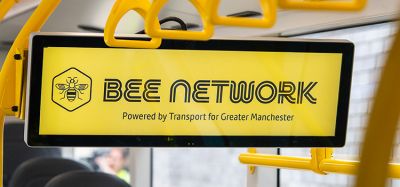MaaS: Contributing to daily mobility needs
- Like
- Digg
- Del
- Tumblr
- VKontakte
- Buffer
- Love This
- Odnoklassniki
- Meneame
- Blogger
- Amazon
- Yahoo Mail
- Gmail
- AOL
- Newsvine
- HackerNews
- Evernote
- MySpace
- Mail.ru
- Viadeo
- Line
- Comments
- Yummly
- SMS
- Viber
- Telegram
- Subscribe
- Skype
- Facebook Messenger
- Kakao
- LiveJournal
- Yammer
- Edgar
- Fintel
- Mix
- Instapaper
- Copy Link
Posted: 25 August 2016 | Rasmus Lindholm, Director, ERTICO – ITS Europe and Secretary General of MaaS Alliance | 1 comment
When the Mobility as a Service (MaaS) model became more concrete a couple of years ago in Helsinki, many in the industry welcomed it as a life-changer. It was hailed as the ultimate solution…


In an already hectic world where people rush to get to work in the morning; take children to school; do their shopping; commute from the outskirts of large cities into the often very congested city centre, etc. people want to move easily, conveniently and efficiently.


The dream of being able to skip queues to get a ticket; reduce the waiting time for a bus; easily change plans due to a train delay or a street closure is not something new. It has been contemplated by many frustrated users who don’t want to keep wasting their time, as well as by local authorities in their constant efforts to improve transport services and urban mobility.
When the Mobility as a Service (MaaS) model became more concrete a couple of years ago in Helsinki – thanks to the strong support of the Finnish Ministry of Transport – many in the industry welcomed it as a life-changer. It was hailed as the ultimate solution to the desire of a ‘one-stop-shop’ where users can subscribe through their smartphone to one package tailored for them, enabling them to use different transport modes such as buses, trains, bike-sharing schemes, private cars etc. to fulfil their daily mobility needs.
Now new businesses and companies offering MaaS services are emerging worldwide with very high expectations. New partnerships are being created as we speak and they face a very challenging and competitive market. Telecommunications, service providers and infrastructure authorities are just some of the potential sectors looking to take a lead in this process.
However, they are not necessarily talking to each other, nor are they considering all the aspects related to MaaS. For this reason, the MaaS Alliance was officially established to tackle this fragmentation by connecting different parties from industry and from the public authority side, to build a pan-European legal, technical and market-ready framework for the acceleration of the MaaS services roll-out. This is currently being discussed in the four working groups created to focus on the aforementioned aspects, in addition to keeping in mind the user perspective.
We hope that our work as MaaS Alliance and as the ERTICO Partnership as a whole will create the right framework for implementation of business rules for mobility and transport operators to ensure interoperability across Europe with the end goal being the creation of a single MaaS market.
Thus far 20 organisations have joined the ride, including public authorities such as the Finnish Ministry of Communications and Transport, Northamptonshire County Council, the Transport Authority in Barcelona, large industry players such as Cubic, Xerox, Siemens, National Mobile Payment Plc., and other organisations such as ACEA, IRU and FIA. Our aim is to develop further and grow; MaaS is a reality, but we now need to mould it into a real framework.


Rasmus Lindholm is Director, Partnership Development, Communications & Advocacy, ERTICO – ITS Europe and Secretary General of MaaS Alliance.









Would be nice to explore in an exclusive environment in a developing country like Pakistan. Lets explore the opportunity and potential.
SKYPE professor.shamshad
+92 313 860 7090